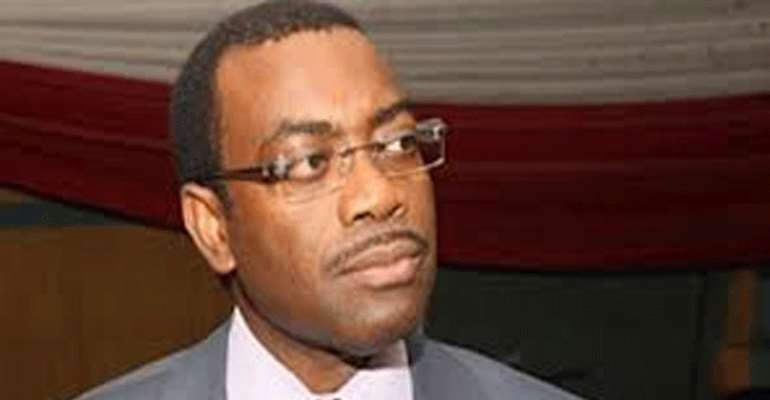AfDB approves $600 million to boost Nigeria's economy

Following the present recession biting Nigeria, the board of the African Development Bank (AfDB) has approved the sum of $600 million to support the economy.
This was revealed by the President of the Bank and former Minister of agriculture, Dr Akinwumi Adesina while fielding questions from journalists at the 11th African Economic Conference which started in Abuja on Monday with the theme: 'Feed Africa, Towards Agro Allied Industrialization for Inclusive Growth,' jointly organised by the AfDB, the United Nations Economic Commission for Africa (UNECA) and the United Nations Development Programme (UNDP).
Reacting to questions from journalists on the support of the bank in coming out of the current recession, Akinwumi said 'As far as the AfDB is concerned, we had said that we were going to consider a billion dollars to support Nigeria when I visited the President and already that has gone to the board and 600million dollars has been approved by our board just a month ago for Nigeria to support its economic governance.'
He said, 'That amount of money is going to help in many ways to stabilise the naira. It is also going to help the government to support very much needed reforms in the agricultural sector in terms of different agricultural policy reforms, but also in the energy sector that are very fundamental to how you grow the economy and come out of recession.'
Adesina further said on the issue of coming out of recession that, 'We will finance huge amount of support to the private sector,' adding that 'the AfDB continues to make significant amount of support in the private sector. They are investing in banks; we are giving them quite a lot of financial support trying to keep them afloat in this very tough period.'
The AFDB president, however, noted that in coming out of recession, Nigeria will also require some tough policy decisions, adding 'I think the government has taken some tough policy decisions,' noting that 'when the price of petroleum collapsed, the price of subsidy was removed, the naira was also allowed to devalue.'
Adesina noted that there was still a problem with regards to the forex market. 'There are still a number of issues to be sorted out. We got to have the monitory policy and the fiscal policy regime sorted out so as to be able to stabilise the naira, provide sufficient amount of access to foreign exchange for Forex for those that want to bring in machinery equipment or materials'.
He expressed optimism that as these policy instruments are sorted out, Nigeria should be in a good position to significantly attract some amount of foreign direct investment which it needs.
